Indication
This formula was originally created by Hong Ji (a.k.a. Hong Jiu-You) and appeared in his book, ‘Secret Prescriptions for Keeping Health (she sheng mi pou)’ 1638. It is said that this prescription was revealed to him by one of the tian wang in a dream; hence, the name of the formula (tian wang bu xin dan). The tian wang are the Celestial Kings of Chinese myth, also known as the world protectors.
According to Buddhist teachings, these fierce-looking beings are the guardians of the four quarters of the world. They fight against evil and protect the places where goodness is taught. Their bodies are protected by armor and they wear helmets or crowns on their heads. Images of them can be found in Chinese and Japanese Buddhist monasteries.
It is therefore very strange (but not surprising) that the name of this formula is generally translated as ‘The Heavenly Emperor’s Heart Tonic Pill’ – as if there were only one ruler, and that the celestial regions had been unified under a single emperor! Another word about the name of the formula; you will note that rather than being classed as a decoction (tang), powder (san) or pill (wan), the last Chinese character is dan. This refers to herbal formulations that were:
Used as elixirs for prolonging life – generally devised by Daoist adepts.
Special formulations that were comprised of sublimated minerals, including heavy metals.
In this case both attributes apply: firstly due to its origin and secondly due to the fact that the original was prepared from finely powdered ingredients that were formed into large boluses with honey and then rolled in cinnabar (mercuric sulphide prepared by aqueous trituration). Nowadays we dispense with the cinnabar because of the risk of toxicity.
However, the formula is still highly effective for a wide range of mental and emotional disorders that arise from Heart and Kidney Yin deficiency with failure of co-ordination between these two Zang organs and flourishing Fire. It has been effective in treating such diverse conditions as post-traumatic stress disorder, dependency on tranquilisers and dysphoria that may occur in association with menopause.
The synergistic actions of the herbs are as follows:
Rehmannia root (sheng di huang), Asparagus tuber (tian men dong), Ophiopogon tuber (mai men dong), Scrophularia root (xuan shen): nourish the Heart and Kidney Yin, reduce deficiency Fire.
Ziziphus seed (suan zao ren), Biota seed (bai zi ren), Salvia root (dan shen), Poria cocos (fu ling), Schisandra fruit (wu wei zi), Polygala root (yuan zhi): nourish the Heart and calm the Spirit.
Codonopsis root (dang shen), Poria cocos (fu ling), Polygala root (yuan zhi): tonify the Heart Qi to calm the Spirit.
Angelica polymorpha, root (dang-gui), Rehmannia root (sheng di huang), Salvia root (dan shen), Polygala root (yuan zhi): nourish the Heart Blood to calm the Spirit.
Platycodon root (jie geng), Polygala root (yuan zhi): guide the actions of the herbs in the formula to the Heart.
Indications:
Insomnia
Anxiety
Neurasthenia
Aphthous ulcer
Hypnotics dependency
Hypertension
Paroxysmal tachycardia
Chronic recurrent cystitis
Signs & Symptoms:
Irritability
Extreme anxiety
Insomnia, sleep disturbance
Palpitations (induced by fright or anxiety)
Night sweats
Inability to concentrate, forgetfulness
Fatigue (physical and mental)
Nocturnal emissions
Mouth or tongue ulcers
Dry stools
Low fever or tidal fever
Red tongue with little or no coat
Thready and rapid pulse
Combinations –
Dryness syndromes:
ZHI YIN GAN LU YIN
Insomnia, chronic:
AN SHEN DING ZHI WAN
GAN MAI DA ZAO WAN (Jia Wei)
JIN GUI SUAN ZAO REN TANG
Menopausal syndrome, hot flushes and dysphoria:
ZHI BAI BA WEI WAN
ER XIAN TANG
MENOPAUSE 2 Formula
TCM Syndromes: Heart-Kidney disharmony.
TCM Actions: Nourishes the Heart and Kidney Yin, reduces deficiency Fire, promotes Heart-Kidney interaction, calms the Spirit.
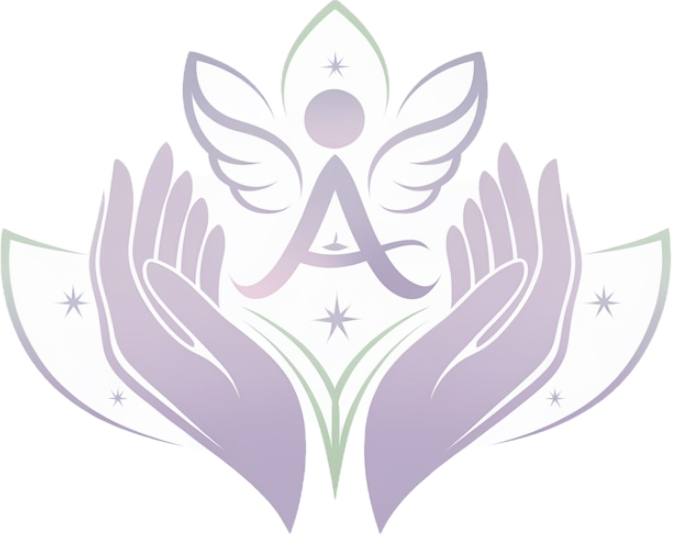
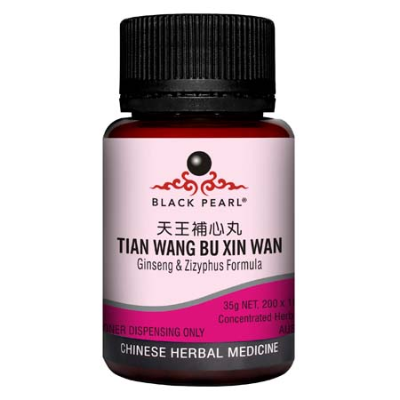
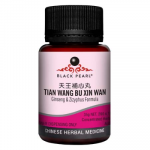
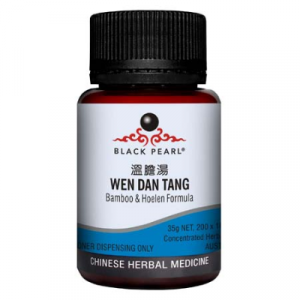
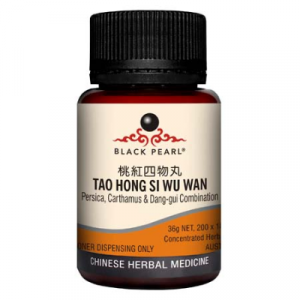

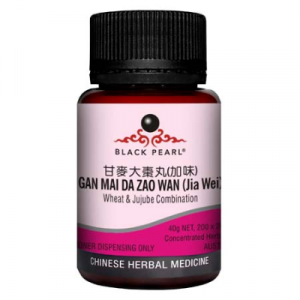
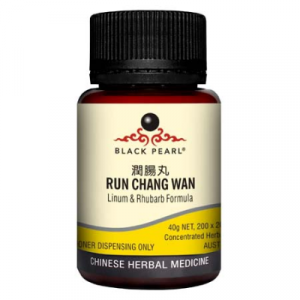
Reviews
There are no reviews yet.